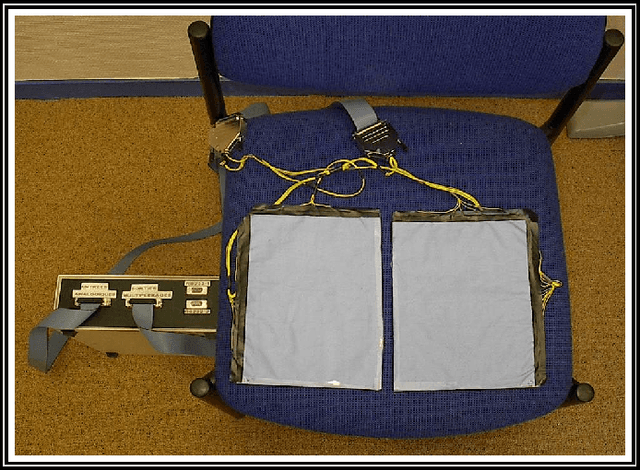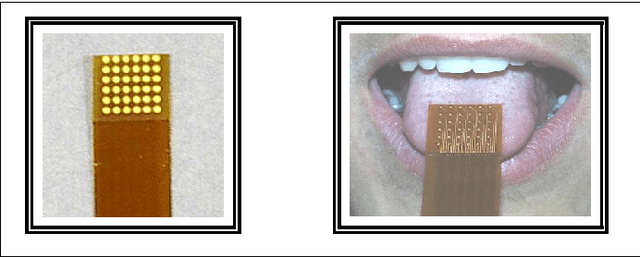Utilisation de la substitution sensorielle par électro-stimulation linguale pour la prévention des escarres chez les paraplégiques. Etude préliminaire
Paper and Code
Jul 12, 2006


Pressure ulcers are recognized as a major health issue in individuals with spinal cord injuries and new approaches to prevent this pathology are necessary. An innovative health strategy is being developed through the use of computer and sensory substitution via the tongue in order to compensate for the sensory loss in the buttock area for individuals with paraplegia. This sensory compensation will enable individuals with spinal cord injuries to be aware of a localized excess of pressure at the skin/seat interface and, consequently, will enable them to prevent the formation of pressure ulcers by relieving the cutaneous area of suffering. This work reports an initial evaluation of this approach and the feasibility of creating an adapted behavior, with a change in pressure as a response to electro-stimulated information on the tongue. Obtained during a clinical study in 10 healthy seated subjects, the first results are encouraging, with 92% success in 100 performed tests. These results, which have to be completed and validated in the paraplegic population, may lead to a new approach to education in health to prevent the formation of pressure ulcers within this population. Keywords: Spinal Cord Injuries, Pressure Ulcer, Sensory Substitution, Health Education, Biomedical Informatics.
 Add to Chrome
Add to Chrome Add to Firefox
Add to Firefox Add to Edge
Add to Edge